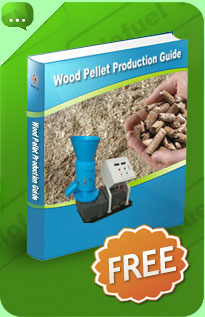Pelleting Press
Pelleting press is utilized to compress numerous raw supplies into pellets. Pellets are modest cylindrical cylinders, and they could be produced in various lengths and diameters. You will find different purposes for a pelleting press and benefits from compressing raw supplies.
Pelleting press and Growing Bulk Density
By processing raw supplies via a pelleting press, it is achievable to improve the bulk density of several raw supplies, possibly by a factor of ten. By increasing bulk density, a bigger quantity could be transported and stored inside the same volume. Therefore this reduces transportation expenses, and keeps the number of lorries and boats necessary to a minimum. Also storage space required is also reduced. So in pellet stoves as an example, the hopper can hold a far higher amount of fuel in pellet form apposed to loose wood shavings.
Pellets Flow Like a Liquid
By compressing the raw material in a pelleting press, the pellets produced have an increased bulk density and consequently a higher particular gravity. This means in a hopper pellets behave like a liquid, and therefore are unlikely to trigger issues with bridging inside the hopper. In case you take uncompressed wood shavings as an example, in a hopper the flow will likely be halted by issue with the shavings falling via the hopper, along with the weight of the shavings and also the support of the angle of the hopper are of equal force. By increased the particular gravity of the shavings by processing in a pelleting press into pellets the forces are no longer equal, and also the weight of the pellets causes them often to fall to the base of the hopper.
Pelleting press and Feed Pellets
For over a century, pelleting presses have being utilised to compress animal feed. The benefits are the feed stores much better, nutrients and vitamins could be added and decreased space necessary for feed storage.
Pelleting press and Wood Pellets
Fairly recently as a result of concerns over climate change and fossil fuel costs attention for option fuels including wood pellets has been growing. By compressing wood into pellets has the previously stated benefits of reduced storage and delivery requirements and flowing characteristics in hoppers. An additional key benefit of wood pellets and increased density, is with regards to combustion efficiency. By compressing a fuel, a much higher combustion temperature might be achieved. An increased combustion temperature outcomes in far more useable heat extracted from the fuel, and reduced ash percentage due to a more total burn.

